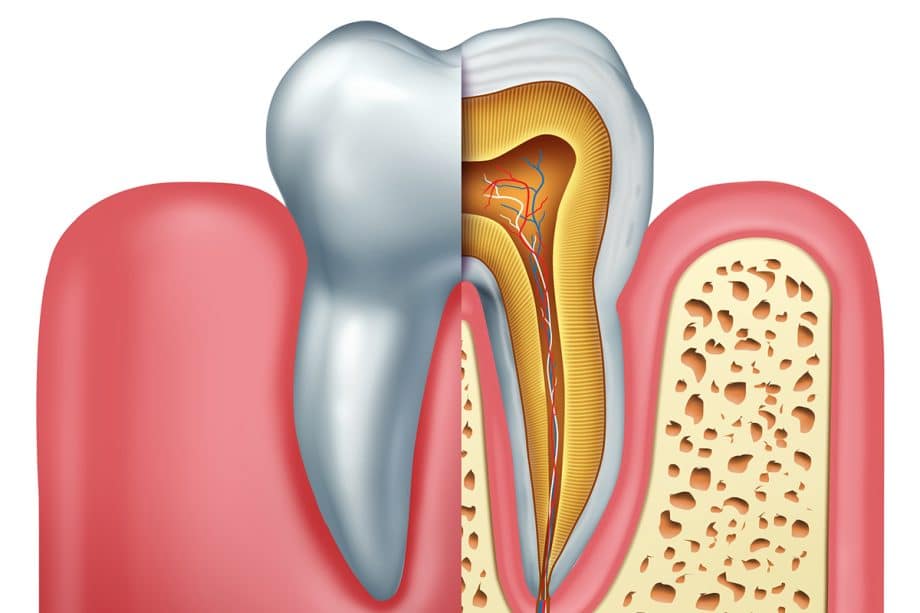If you are wondering what an endodontist is, it’s likely because your dentist has referred you to this dental specialist for treatment. All endodontists receive the same initial training and education as general dentists, so they are all dentists. But not all dentists are endodontists. In fact, less than 3% of dentists pursue the additional education and training necessary to become an endodontist. Read on to learn more about the difference between an endodontist and a dentist.
What is an Endodontist?
An endodontist is a dentist who not only graduated from dental school, but also received postgraduate training for an additional 2-3 years. So while endodontists are fully licensed and trained to perform general dentistry service, they focus on providing care that regular dentists do not provide.
More specifically, endodontists specialize in treatment for the interior of the teeth. Known as the dental pulp, the interior chamber contains a network of nerves and the root of the tooth. The pulp is at risk of decay just like the exterior of the tooth. But, the pulp is also at risk of developing an infection that must be treated, or else the tooth will be lost.
As such, endodontists are specialists you’ll see if you need a root canal. A root canal involves drilling a tiny hole to access the dental pulp. The pulp will be removed, and the interior chamber will be thoroughly cleaned and disinfected, before being sealed. The tooth will then be permanently filled and/or fitted with a permanent crown.
You will also need to seek treatment from an endodontist if a tooth that previously had a root canal begins to cause you pain. This is known as endodontic retreatment. Likewise, if you develop inflammation or an infection surrounding the very tip of the root of the tooth (known as the apex), an endodontist will surgically remove the apex through a small incision in the gum. This surgery is known interchangeably as an apicoectomy or apical surgery.
Another reason you may need to see an endodontist instead of a general dentist is if you’ve experienced dental trauma or a cracked tooth. In some cases, if you seek treatment quickly, a tooth that has been knocked out as the result of an accident or sports injury may be able to be re-implanted by an endodontist.
Finally, if you’ve cracked a tooth, an endodontist may be able to salvage the tooth if treatment is sought early and the interior is cleaned, disinfected, and restored with a crown.
Endodontists Specialize in Saving Teeth and Treating Pain
As evidenced by the type of procedures that endodontists perform, their goals for your treatment are two-fold: to save natural teeth, and to eliminate pain. Preserving natural teeth, even if they require root canal therapy, is always preferable for health and aesthetic reasons. It is also more cost-effective than extracting a tooth and replacing it with a restoration such as a dental implant or crown.
Likewise, all treatments that endodontists perform result in relief from pain. Although you may experience a bit of tenderness following a root canal, the sharp toothache you’ve experienced will go away, often by the time the treatment is complete. By cleaning out decay, treating infections with medication, and sealing the tooth, you’ll experience relief from pain swiftly.
Schedule a Root Canal or Emergency Dental Treatment in Leesburg, VA
If you’ve been referred for a root canal, or you’ve experienced any dental trauma, contact Loudoun Endodontics today by calling 703-779-7900. For your convenience, you may also request an appointment online. To serve your dental emergencies, Dr. Matthew Detar and Dr. Preeti Batra offer extended hours on Friday evenings and Saturdays.

